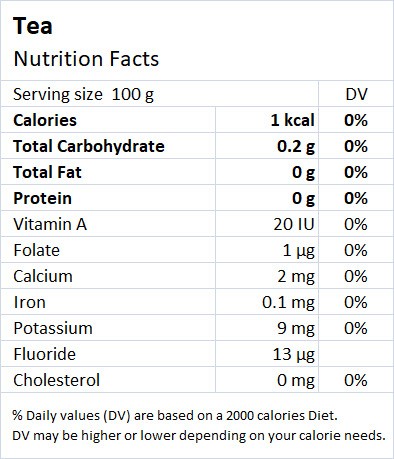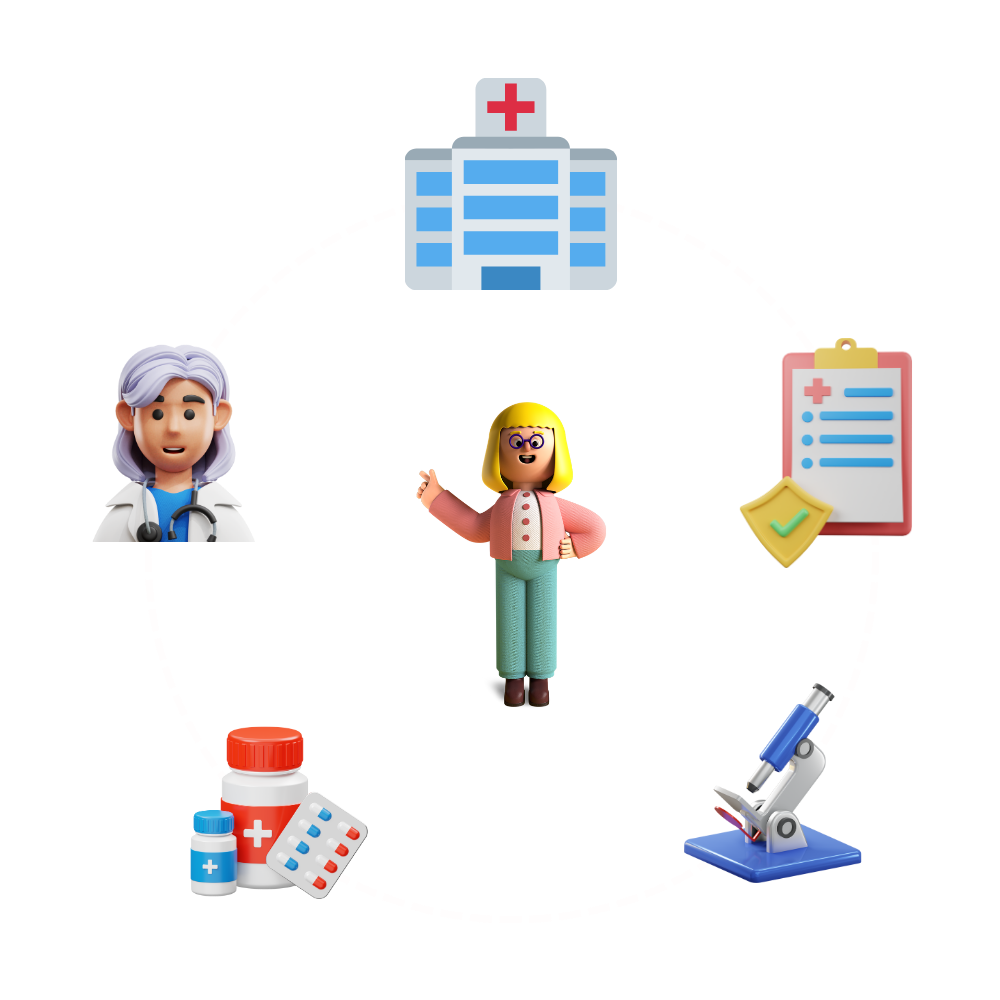Tea comes from the camellia Sinensis plant. Tea is also known as chai. Caffeine is present in tea and caffeine has many health benefits. Tea is one of the most consumed beverages. Tea is the most popular drink because of its taste, worldwide appeal and lots of health benefits.
Tea has many nutrients, such as sodium, potassium, calcium, manganese, vitamin C, vitamin B2, vitamin E, folic acid, beta carotene, caffeine, catechins, theanine, saponins, fluorine, etc. and because of these nutrients, it has many health benefits.
Tea has many health benefits such as, fight with cancer, prevent heart disease, decrease hypertension, decrease the blood sugar level, decreases cholesterol, provide the health of the brain, fight with inflammation, etc.
Botanical Name: Camellia sinensis
Tea was first to introduce to Japan, by Japanese Buddhist monks. The story of tea begins in China. According to legend, in 2737 BC, the Chinese emperor Shen Nung was sitting beneath a tree while his servant boiled drinking water when some leaves from the tree clout into the water. Shen Nung, a renowned herbalist, decided to try the impetus that his servant had accidentally created. The tree was a Camellia sinensis and the resulting drink was now call tea.
Tea is a quintessentially British drink, and we have been drinking it for over 350 years.
There are many varieties of tea like Green tea, Black tea, White tea, Oolong tea and Pu-erh tea.
Another variety of tea is ginger tea, ginkgo Biloba tea, ginseng tea, hibiscus tea, jasmine tea, rosehip tea, chamomile tea, Echinacea tea etc.
Nutritional Profile

Health Benefits
Brain health
Tea can create brain health. Tea has L- theanine is an amino acid. This amino acid can calm the brain and increase the alert state of mind. Tea can help in relaxing and concentrate on the brain. It can reduce the risk of cognitive impairment. It can help to increase the memory and cognitive function of the brain.
Tea can help in reducing the stress hormone level. So it also helps in decreasing the anxiety as well as depression. It can also help in reducing irritation, headache, tension, insomnia, etc. so it can help a person who is suffering from sleeplessness due to anxiety.
MAIN THING: Caffeine in tea can help in boosting the power of the brain and help in reducing the risk of nervous system disorders, such as Parkinsonism, insomnia, etc.
Cardiovascular health
Tea can help in reducing the bad cholesterol level in the body. Because of the high level of bad cholesterol can reduce the level of good cholesterol or HDL. HDL can protect the heart from cardiovascular disease. HDL can help in reducing the risk of formation of clots in the vessels and stay away from a heart attack, stroke, thrombosis, atherosclerosis, embolism, plaques, etc.
Tea has an adequate amount of sodium and potassium. Sodium and potassium can regulate normal blood pressure.
MAIN THING: Balance of these minerals can help in reducing the risk of hypertension. Low levels of bad cholesterol of tea can also help in reducing the risk of hypertension.
Immunity booster
Tea is rich in antioxidants. This antioxidant property of tea can help in boosting the power of the immune system. Antioxidants present in tea can fight with free radicals and remove them from the body. Because free radicals are the main cause of many chronic diseases, such as heart disease, cancer, liver diseases, etc.
Tea enhances the power of the immune system by increasing the white blood cells in the blood, which is the natural fighter of the body. Tea also works as a blood purifier and boost blood circulation. Blood purification can remove the toxins and foreign bodies from the blood as well as increasing the level of antioxidants. These properties of tea can help to immunity.
MAIN THING: Tea has antibacterial, antifungal and anti-inflammatory properties. These properties can help in boosting the power of the immune system by reducing the infection or fight with infection.
Improve gut health
Tea is made the digestive system healthy. Tea is rich in polyphenols which are helping to increase the growth of good bacteria in the gut and reducing the bad bacteria in the gut. Good bacteria in the gut can help in good and proper digestion.
Tea has antispasmodic property too. It can help in reducing cramps and pain in the stomach. Tea can improve digestion by stimulating the secretion of digestive enzymes.
MAIN THING: The polyphenols in tea help in reducing the risk of inflammation in intestine such as inflammatory bowel disease and also good for reducing flatulence, gastric irritability, dyspepsia, nausea, chronic diarrhea, stomach ulcer and dysentery.
Damage repair
Tea is extremely rich with antioxidants. Antioxidants can give protection against damage in the body. Tea has antioxidants like polyphenols, including catechins, theaflavins, thearubigins, etc. Antioxidants in tea can help slow down the process of aging and help in the regeneration of cells. So antioxidants' property of tea can help in repairmen of damage in the body.
Polyphenols act as antioxidants. This can help in removing the free radicals from the body which causes damage to cells. So removing the free radicals by antioxidants of tea can also remove the risk of cancer and other chronic diseases.
MAIN THING: Tea can hydrate to the body. This hydration is because of its antioxidant properties which are helpful in providing the overall health.
Help in weight loss
Tea can help in reducing weight. Whenever consuming the extra amount of sugar it can increase the risk of diabetes and another metabolic syndrome. The extra amount of sugar in the body can store in the form of fat and can increase the weight.
MAIN THING: Tea can help in reducing obesity by increasing metabolic activity and reducing the level of fat as well as obesity.
Control Blood Sugar level
The main health-promoting substances in tea are polyphenols, in particular catechins and epicatechins.
Lab and animal studies suggested that polyphenols in tea have anti-inflammatory and antioxidant properties. A group studies of large groups of people over time have found that tea or coffee drinkers are at lower risk for diabetes and possibly cardiovascular disease.
MAIN THING: Drinking of tea, 3-4 cups a day can reduce the risk of diabetes and also helpful to control blood sugar level.
Safety Profiles
Sleep disturbances: tea contains caffeine. Caffeine can help in the alertness of the mind and decrease sleep. So if anyone suffering from insomnia, do not consume tea especially before bedtime.
Anemia: tea contains lots of antioxidants that can reduce iron absorption in the human body. So avoid the use of tea if you suffer from anemia.
Bleeding disorder: tea can decrease the level of fibrinogen, compound which is necessary for blood clotting. So if anyone suffering from the bleeding disorder, do not consume tea. It can be dangerous.
Selection and Storage
Selection
During the selection of the tea, look for quality and fragrance of tea. Choose the tea which is available without adulteration.
Storage
Tea should be stored in a refrigerator in a sealed airtight container and away from light.




 Drlogy
Drlogy









